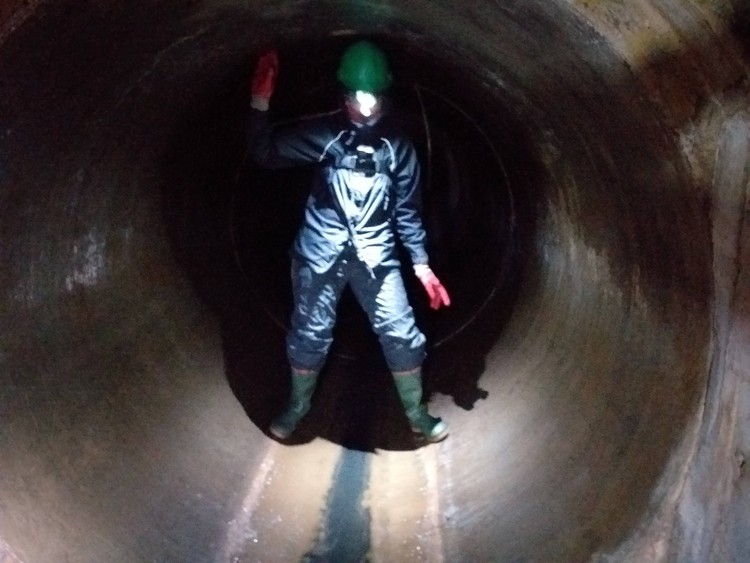We are all responsible for Gauteng’s water problems
Government, business and residents can all do their share to ensure a sustainable water supply
Inside a storm water drain in Johannesburg. Archive photo: Sean Christie
In his opening remarks during a recent public webinar Deputy Minister of Water and Sanitation David Mahlobo placed the blame for Gauteng’s water crisis on municipalities for failing to maintain infrastructure and on consumers for using too much water.
National government is not alone in playing the blame game. So do bulk water suppliers, municipalities, residents and business owners.
But if we’re serious about dealing with the water crisis in Gauteng, everyone has a share in the blame and a role to play in the solution.
State entities need to pay their bills
In August 2024, Finance Minister Enoch Godongwana revealed that various state entities collectively owe municipalities R18.6-billion in rates and taxes. Gauteng’s municipalities alone are owed R3.5-billion. In November, Gauteng Premier Panyaza Lesufi said that Gauteng public schools owed municipalities R262-million.
Municipalities need this money to maintain and repair their water infrastructure, among other things.
The City of Johannesburg has a water infrastructure backlog of R28-billion, against a total annual capital expenditure budget of R8-billion – that’s the budget for all capital expenditure works, not just those that are water-related.
Instead of blaming municipalities for the water crisis, the state entities should pay what it owes for rates and taxes.
Municipalities need to fix leaks
Then there is the issue that “non-revenue” water – water put into the system on which the authorities do not recover any money – currently stands at 46% of water in the system in Johannesburg.
For this, Mahlobo blamed the failure of municipalities to maintain their water infrastructure, resulting in leaks.
Government needs to register new townships
Leakage does account for a major portion of non-revenue water, but so does water that is used but not billed. And the national and provincial governments contribute to this in a significant way.
For instance, they fail to register new townships in a timely manner. For recipients of government housing to receive a bill, the new township needs to be registered, and the title deeds for each house must be registered in the name of an individual beneficiary.
In many instances, this takes decades. The residents of Vlakfontein, for example, received their stands in 2002, but their title deeds only in 2017. They have yet to receive a bill for rates and taxes from Johannesburg. All of that unbilled water is non-revenue water and it is the result of the national and provincial governments failing to ensure that the City had the information to bill the residents.
Residents and businesses need to pay their bills
As for residents and businesses, they blame municipalities for their water woes, but large numbers of consumers choose not to pay their bills, yet still expect to receive a service.
A recent revenue drive by City Power Johannesburg revealed that some businesses and suburban residents, when threatened with electricity disconnection, managed to stump up an immediate R1-million payment, a clear indication that non-payment was an option they expected to get away with. It is the same with respect to water.
Municipalities need to fix their billing issues
Municipalities blame residents and business owners for not paying their bills, yet the City of Johannesburg’s billing and revenue collection is a mess. Anecdotal examples of this abound on my street in Bellevue East.
In the 1990s in Tlhabane in North West Province I worked with hundreds of incorrect cut-off notices issued to residents. Our solution was to speak to households first, listen to their explanations, and then cross-check meter readings and numbers, only taking action in clear cases of non-payment. In this way, huge problems were avoided, and goodwill between residents and authorities maintained.
Opposition parties need to understand the history
Opposition parties like to blame other political parties. The DA says Johannesburg’s water issues are a consequence of years of neglect by the ANC, as if water systems were well maintained and functioning before the ANC came to power in 1994. Perhaps that was true if you lived in the white municipalities such as Sandton, run by the predecessor of the DA, the Progressive Federal Party, but it was definitely not true if you lived in the adjacent township of Alexandra, which was totally ignored by Sandton except as a source of cheap labour.
Come 1994, rates and taxes had to be spent equitably throughout the entire municipality and focus on improving those areas that had been previously neglected. This happened just as infrastructure, particularly fibre cement water pipes laid down in many parts of Johannesburg, including Sandton, were starting to reach end of life, and needed replacing. There was, and remains, insufficient money to do both.
The water sector is in a vicious cycle. We won’t break out of it if we continue blaming others. We can all contribute to solving the problem by recognising our part, even if relatively small, and look for ways to contribute to the solution.
View expressed are not necessarily those of GroundUp.
Support independent journalism
Donate using Payfast

Don't miss out on the latest news
We respect your privacy, and promise we won't spam you.
© 2024 GroundUp. This article is licensed under a Creative Commons Attribution-NoDerivatives 4.0 International License.
You may republish this article, so long as you credit the authors and GroundUp, and do not change the text. Please include a link back to the original article.
We put an invisible pixel in the article so that we can count traffic to republishers. All analytics tools are solely on our servers. We do not give our logs to any third party. Logs are deleted after two weeks. We do not use any IP address identifying information except to count regional traffic. We are solely interested in counting hits, not tracking users. If you republish, please do not delete the invisible pixel.

